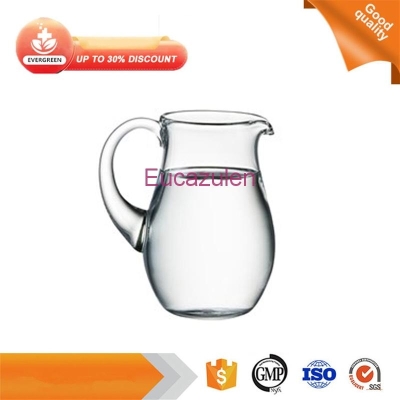-
Categories
-
Pharmaceutical Intermediates
-
Active Pharmaceutical Ingredients
-
Food Additives
- Industrial Coatings
- Agrochemicals
- Dyes and Pigments
- Surfactant
- Flavors and Fragrances
- Chemical Reagents
- Catalyst and Auxiliary
- Natural Products
- Inorganic Chemistry
-
Organic Chemistry
-
Biochemical Engineering
- Analytical Chemistry
- Cosmetic Ingredient
-
Pharmaceutical Intermediates
Promotion
ECHEMI Mall
Wholesale
Weekly Price
Exhibition
News
-
Trade Service
The study of chronic infection in patients with genetic immunodeficiency provides a strong basis for understanding the adaptive process of bacteria .
Most of the previous work has focused on the evolution within the established host of human pathogens.
The main evolutionary selection pressures include antibiotic pressure and host immune response .
These studies have shown that many general evolutionary processes can be seen under the conditions of adaptation within the host .
In some cases, increased mutation rates due to evolutionary mismatch repair (MMR) defects or the insertion of mobile genetic elements have been shown to contribute to rapid evolution
.
Dramatic examples of genome compression due to the formation of pseudogenes and large chromosomal deletions have also been described, which in some cases can lead to loss of pathogenicity and the evolution of obvious pathogen-host relationships
An important insight that we have gained from these studies on the internal adaptability of the host is that the genetic modifications that occur during chronic infection are often similar to those human restricted pathogens that emerged from a wide host range during a longer evolutionary period.
Bordetella hinzii is a member of β-protective bacteria, which was originally found in the respiratory tract of poultry
.
Although mainly related to non-human hosts, Bordetella hinzii is a genetic relative of Bacillus pertussis and the cause of human pertussis
Bordetella hinzii is considered to represent an emerging pathogen, the risk to humans and zoonosis Bordetella hinzii is considered to represent an emerging pathogen, the risk to humans and zoonosis
Recently, researchers described the mechanism that drives the adaptive evolution of Bordetella hinzii, an emerging zoonotic pathogen in patients with interleukin-12 receptor β1 deficiency
.
Sequencing the genomes of 24 Bordetella hinzii strains cultured from blood and feces within 45 months showed that one clone line had undergone extensive genetic and phenotypic diversification within the host
A clonal line has experienced extensive genetic and phenotypic diversification within the host A clonal line has experienced extensive genetic and phenotypic diversification within the host
Genomic diversity exists in isolated DnaQ E9G
Genomic diversity in isolated DnaQ E9G Genomic diversity in isolated DnaQ E9GThe repeated mutations of various enzymes in the tricarboxylic acid cycle and glucose production pathway indicate that Bordetella hinzii has rapid metabolic adaptation to the human environment
.
In addition, excessive G:C>T:A translocation indicates that oxidative stress has formed genetic diversification in the process of adaptation
Rapid metabolic adaptation to the human environment Rapid metabolic adaptation to the human environment Oxidative stress forms genetic diversification in the process of adaptation Oxidative stress forms genetic diversification in the process of adaptation
In this regard, the researchers proposed that the combination of the inactivation of DNA proofreading activities and the long-term but sub-lethal oxidative attack caused by potential host immune deficiency promotes the rapid adaptation of the genome
.
These findings indicate that after zoonotic infections, the host's immune phenotype plays a fundamental role in shaping the evolution of pathogens
Original source:
Original source:A.
Launay et al.
A.
Leave a message here







